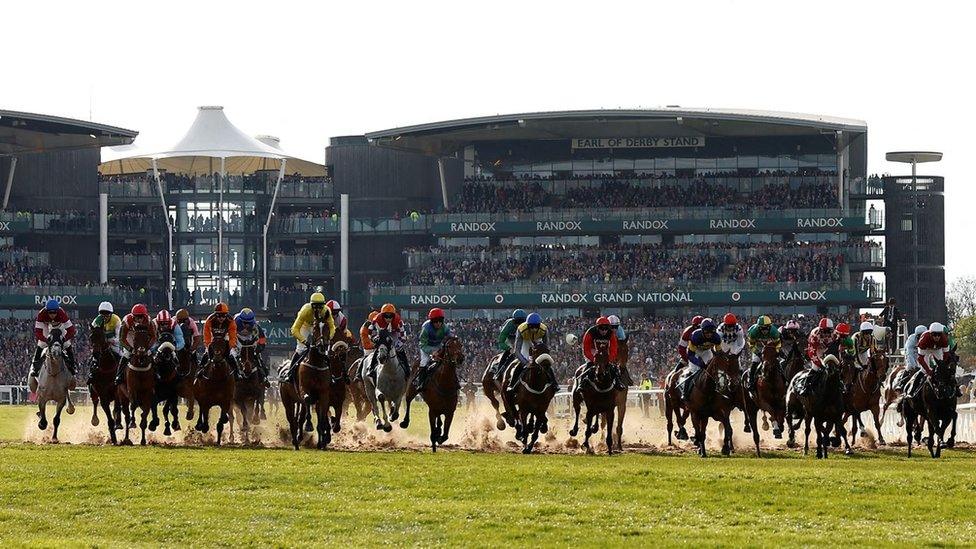Head vet admits Grand National safety challenge
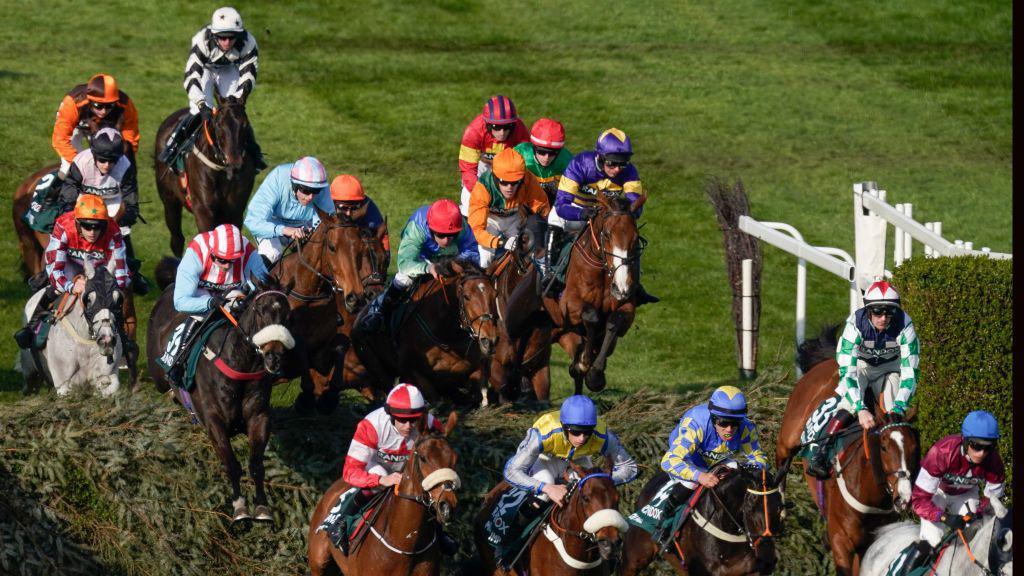
The number of runners in this year's Grand National will be lower to reduce the risk to horses
- Published
The head of equine safety at the British Horseracing Authority (BHA) has admitted there is "always more to do" to improve the safety of horses in the Grand National.
Fewer runners are to take part in Saturday's race as part of a drive to reduce the risk of horses dying.
Thirty-four horses will race this year, down from 40 in recent years.
Lincolnshire veterinarian James Given, from the BHA, said, while they always try to improve safety, "all sport has inherent risk in it".
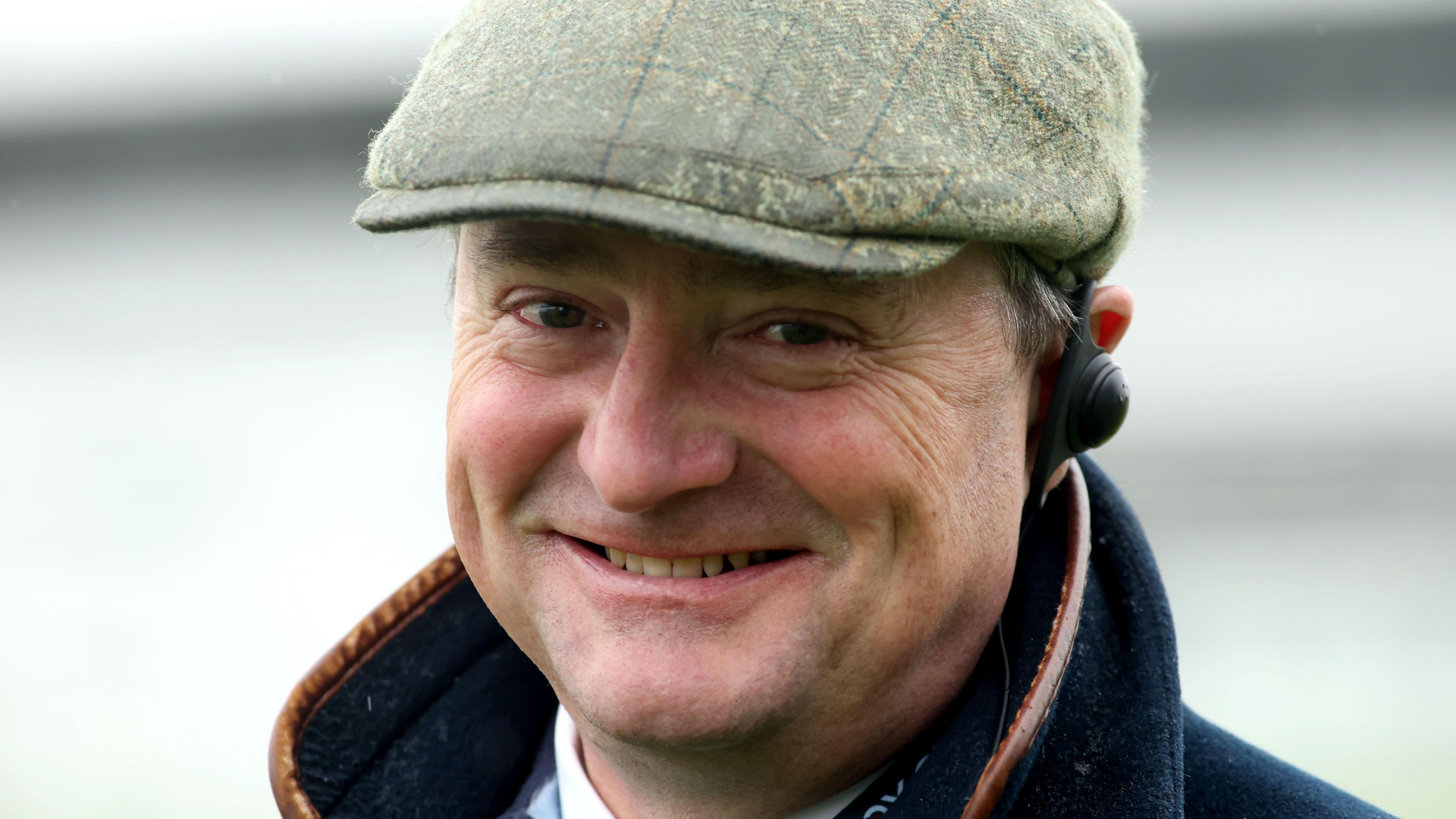
James Given, from the BHA, works with The Jockey Club to ensure animal safety at races
One horse died in the Grand National last year and four died during the 2023 Aintree Festival as a whole.
The signature race was delayed because of animal rights protests and more than 100 people were arrested.
Mr Given said the changes to the Grand National were a "balance between taking away the essence, the nature of the race and balancing what safety we can at the same time".
He admitted the drop in the number of runners to 34 would not please everyone.
"Others would disagree with reducing to 34 and say we should go down to 30, and some would say 'just leave it alone - there's nothing wrong with it at 40'," he said.
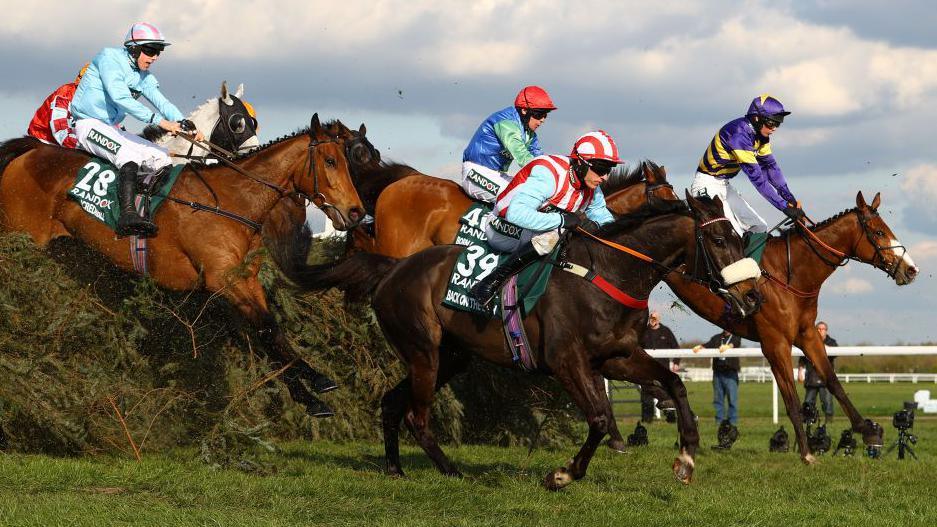
2023 winner Corach Rambler (in purple and yellow) is favourite to win the Grand National again this year
When BBC Radio Lincolnshire asked Mr Given whether the death of any horse is "a failure", he disagreed.
"To call it a failure is quite a black and white view of it," he said.
"I always know I and my team have got more to do to improve the welfare outcomes and improve the safety."
He said they try to reduce or "eradicate, the avoidable risks and minimise as best we can the unavoidable risks".
"Society gives us the licence to continue doing what we think is perfectly fine and the majority of the population do agree with that, but it's our job to earn that social licence and maintain it by ensuring the welfare is as high as we can."
Follow BBC East Yorkshire and Lincolnshire on Facebook, external, X (formerly Twitter), external and Instagram, external. Send your story ideas to eastyorkslincs.news@bbc.co.uk, external
Related topics
- Attribution
- Published13 April 2024
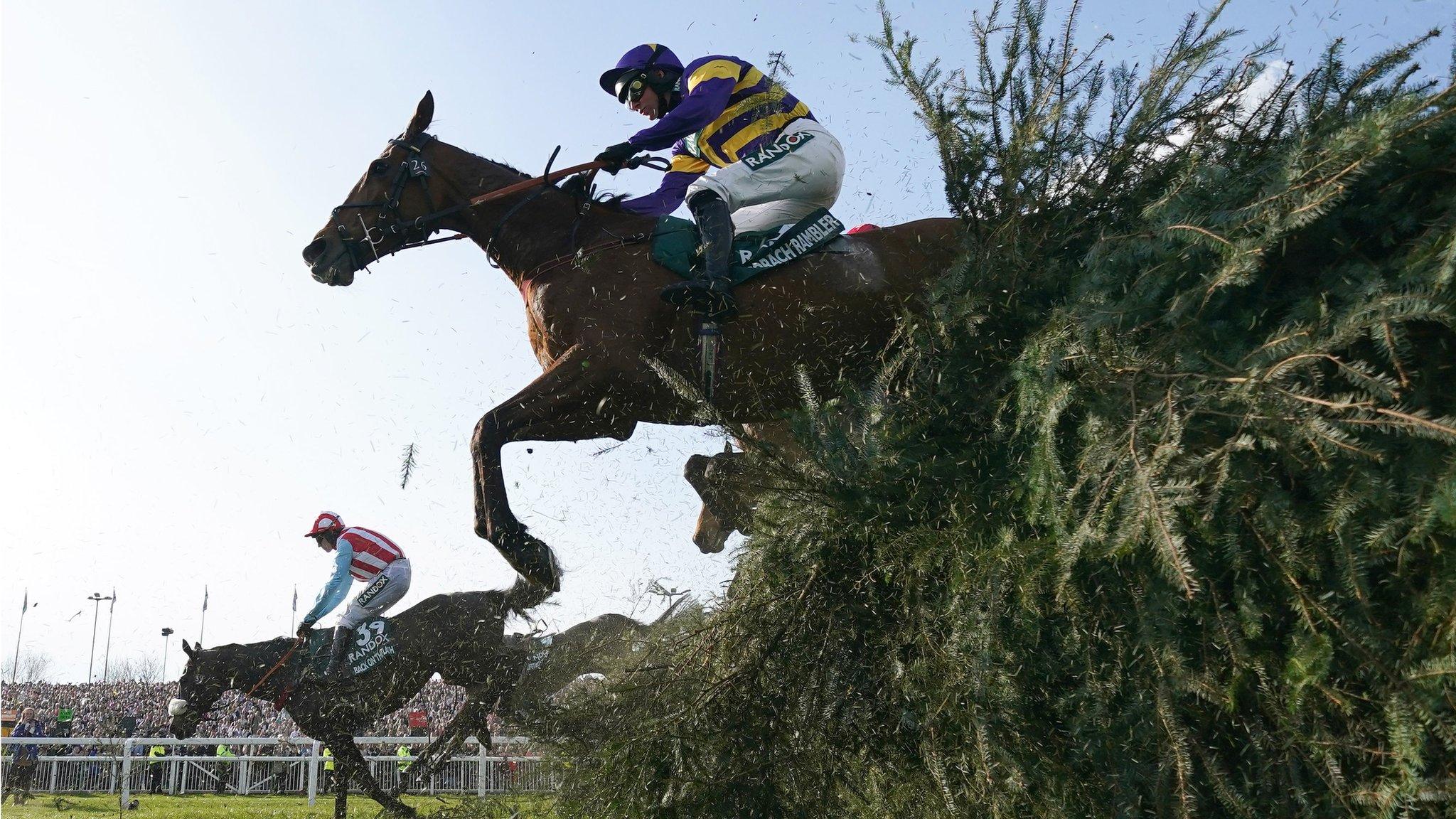
- Published8 April 2024
